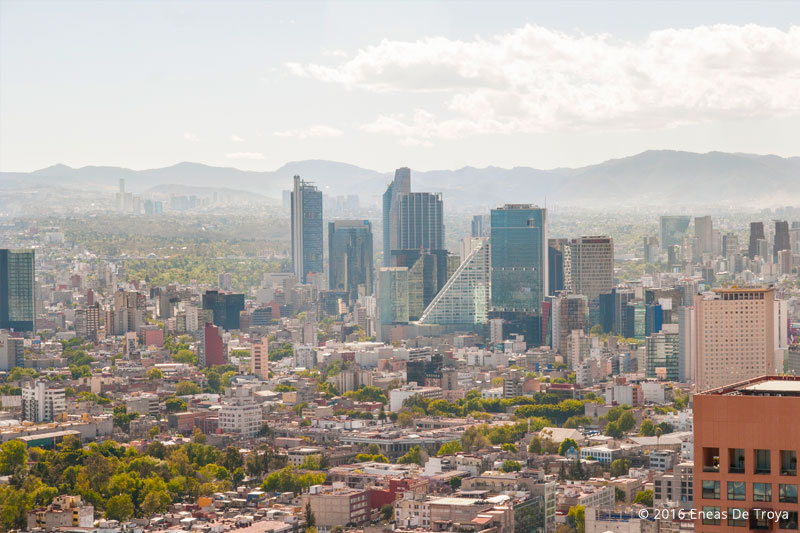Project Details
The Mexico Manifesto was a positioning statement that called upon governments and lawmakers to adopt legislation in favour of audiovisual creators’ rights. It was issued at the end of a two day congress in Mexico City that brought together screenwriters and directors from across the world.
The manifesto highlighted the precise challenge that faces audiovisual creators as a result of insufficient legal protection. It gather supporting data and crafted a narrative to describe the economic and cultural contributions that were at risk. It concluded with a clear call to action that defined exactly the outcome of the congress.
About the Client
Writers & Directors Worldwide is led by creators from dramatic, literary and audiovisual societies around the world. It acts directly to support creators in all regions and in addition, acts as an advisory body to the International Confederation of Societies of Authors and Composers (CISAC). It is also an official observer to the World Intellectual Property Organisation (WIPO) Standing Committee on Copyright and Related Rights.
As a result, the organisation brings specific experience, expertise and the vital “voice of the creator” to the debate on authors’ rights via working groups, executive committee meetings and direct interaction with lawmakers.
Results
This manifesto was instrumental in raising awareness of audiovisual creators fight for fair treatment. It focused attention specifically on the Latin America region and formed part of a larger audiovisual campaign. This subsequently helped to support the successful revision of national authors’ rights legislation by the presidents of Chile and Colombia in October 2016 and May 2017 respectively. Both countries now have an unwaivable right to remuneration added to their statutes.

Writers and directors make a vital contribution to culture, diversity and economic growth all over the world. Our work is the foundation of a huge international industry that acts to immeasurably multiply its value. But our ability to do this work is gravely under threat and we need the support of lawmakers to protect it.
Our Cultural Contribution
In an increasingly fragmented world, our work brings people together both emotionally in a shared appreciation for art, and physically into theatres and cinemas. It provides entertainment and education, stimulating literacy in our children and empathy in our communities. It builds a crucial understanding and appreciation of history and of other cultures around the world.
The United Nations Development Programme described culture as both “a driver and an enabler of human and sustainable development”, and writers and directors are at the very heart of this.
Our Economic Contribution
Of equal importance, is the growing contribution of creative industries to their country’s gross domestic product (GDP). In Europe alone, copyright intensive industries contributed more than four percent of the EU’s total GDP and more than three percent of its total employment. This equates to around half a trillion Euros and over seven million jobs.
These growing, dynamic and innovative industries rely on the creative talent of individuals and in particular, the writers and directors whose work forms the basis of all film, television, dramatic and literary productions.
Why Are These Contributions in Danger?
Despite the glamorous perception of film, television, theatre and literature, the overwhelming majority of creators here are not able to make a living from their work. Consequently many leave the industry every day and their potential contribution to culture and the economy is lost.
One important reason for this is the way that contracts between authors and production or distribution companies are negotiated and concluded. In most cases, screenwriters and directors are the weakest party in these discussions and are unable to individually negotiate fair deals. They are therefore often forced to accept buy-out payments against the transfer of all their rights without compensation.
As a result these creators receive no benefit from the future success of their work and have no body of work from which to derive an income. Without this to bridge the necessary development gaps between projects, many are forced to leave the industry.
This issue is more pressing today than ever before due to the rapid development of new distribution models. Internet services are streaming more audiovisual content, to more people, across more devices but the weak position of creators in contractual negotiations often denies them access to the revenue from this growing digital market.
What do We Believe?
We believe that it is the role of the legislator to redress this balance of power. We believe that all creators should be allowed to make a living from their creations and that doing nothing is no longer an option for governments that wish to protect the vital cultural and economic contributions that we provide.
Authors are the “engine room” of the creative industry and protection of their rights is the key to their survival. Without a script or a director there can be no film, no television production, no theatre play and no novel.
Our Call to Action
Only by acting collectively can the balance of power be redressed and a sustainable system be built for creators. It is the only way to guarantee that writers and directors are fairly paid and it establishes a direct and equitable revenue stream between the market and the authors.
Without authors, there is no audience.


